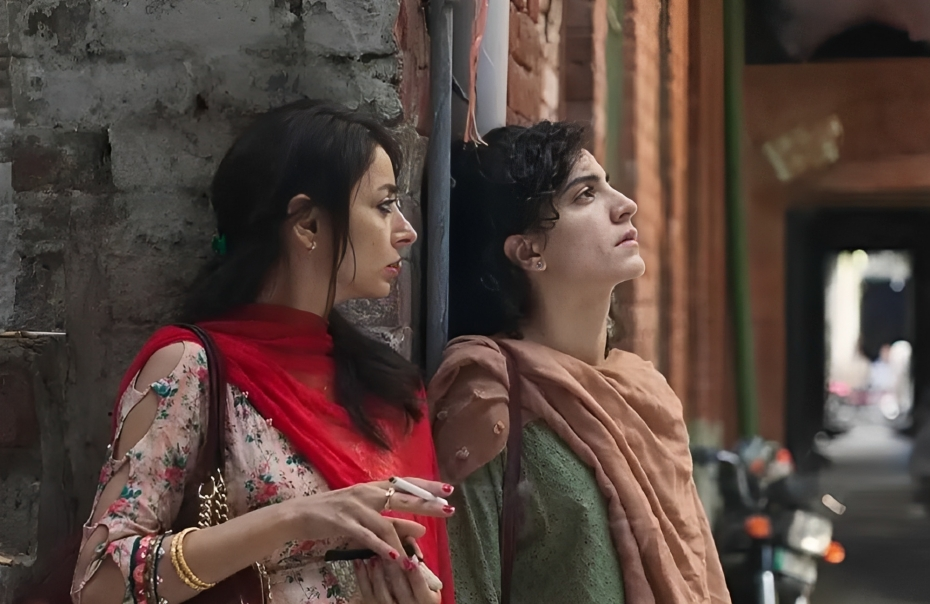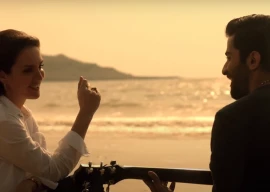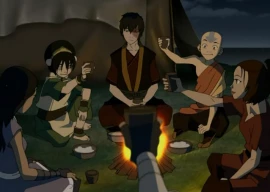
Lessons from the censor board: Vasay Chaudhry on respecting cultural sensitivities
Actor and former VC of PFCB talks reviewing films that challenge the fundamentals of religion, disregard moral values
KARACHI:
Last Friday, caretaker CM Punjab Syed Mohsin Raza Naqvi ordered to dissolve the Punjab Film Censor Board (PFCB) merely two months after a new board of members took charge. Actor and writer Vasay Chaudhry was consequently de-notified. He was appointed the board’s vice chairman on November 18, while The Legend of Maula Jatt co-producer Ammara Hikmat joined as a non-official member, alongside five others. The nine-member committee was established to oversee films for a period of two years.
Although the reasons for the last-minute dissolution are yet to be made public. Chaudhry, who was not part of the team that reviewed the Saim Sadiq directorial, opened up to The Express Tribune about his time at the helm making “tough” calls. The 41-year-old, who has made numerous contributions to local cinema, also detailed why certain things can or cannot be allowed to be screened in Pakistan.
Where is the line?

The now former VP, who reviewed Tich Button, Shot Cut, among others throughout his short-lived tenure, shared, “The films have to be looked at from the lens of the Pakistani constitution, culture, traditions, etcetera. That means there aren’t any hard and fast rules but there are standards that need to be met.”
The Jawani Phir Nahi Ani actor maintained that while extreme violence, blasphemy and nudity are barred through and through, one needs to beware of the things that directly challenge the fundamentals of religion. “You need to be strict in that regard,” he asserted. “A left-oriented person would obviously view things from a different perspective than a right-oriented person. So, you have to strike a balance. And it’s a very delicate balance to strike if one wants to. ‘Wants to’, is the key here,” cautioned the actor.
Asked how the board defines ‘vulgarity’ and whether there is a certain degree of obscenity that is allowed to be expressed through films, Chaudhry reflected, “In Punjab, with a population of roughly 120 million, there is mass consumption of films. To cater to the variety of mindsets, the board has and will continue to have members from all walks of life. There is no one gender making all the calls either. If women on the board think something is vulgar or obscene, you try to view it from their perspective. Somethings are way too obviously out of the line, so there’s no room for debate in that regard.”
The London Nahi Jaunga actor also assured that the criteria are the same for local and international outings. However, as a filmmaker, the liberties one can take with local films differ from the liberties foreign filmmakers take and get away with. “A Hollywood film will be viewed and judged from the perspective of the West. For instance, if a film sees a strip club, obviously there’s going to be nudity. That’s totally fine for a western. But we find ways to show that here. Because you need to realise that even Hollywood sensationalises some things. And sometimes, those things are part of the narrative but that’s not always the case. So, you need to check whether that audio-visual presentation falls in line with your culture.”
‘Joyland’ – a difficult call

While many object to Joyland’s continued ban in Punjab, the Cannes-winning film hasn’t really seen the light of day in Pakistan in its entirety. The censored version that was allowed to be screened in various parts of the country, including Karachi, spoilt the film viewing experience for many, including myself. The last-minute butchery took too much away from the narrative, so much so, that it did not make complete sense toward the end. A harmless hug between a husband and wife was blurred, and a kiss was omitted, among other intimate scenes, but close-ups of a goat being slaughtered made it to the final cut.
Chaudhry refrained from commenting on the decision to disallow Joyland’s screening in Punjab, or offering his two cents on its censored screening elsewhere, he held that banning or allowing Joyland was a difficult decision to make. “I was not part of the committee that banned it and I haven’t watched the film elsewhere, so I can’t say anything. But I’m sure it was a difficult call. Because it was not only about the connotations attached to the film but also how it was politicised,” stated the actor.
About the intimacy versus gore ratio, especially with most Pakistani outings – films or serials – where domestic violence is a common occurrence but a husband and wife are rarely seen embracing each other, Chaudhry remarked, “It’s all relative, depends on the kind of intimacy and the scale of violence. Someone getting shot is one thing but someone’s body parts blowing up is another. Each action needs to be analysed based on how graphic or extreme it is.”
Business v boundaries

While the censor boards are not concerned with the business a film does or fails to do at the box office, seeing as it never gets cleared; one wonders whether the industry will ever grow out of its budget problems, considering the rate at which local films are banned each year. “People at the censor board are interested in the growth of Pakistani cinema, so long as that growth does not come at the expense of blurring certain boundaries that have been defined by the constitution,” offered Chaudhry.
The host and producer, in fact, had a few suggestions about existing censor laws, which he put forth before bidding adieu to his role as VC. “I feel, even with certain animated films, you can’t give a universal rating. Because some concepts you can introduce to a 15-year-old but not to someone younger than that. It’s not just the visuals, it’s also the dialogues that need to be analysed. What is being told is just as important. So, I feel like elsewhere in the world, we need to introduce a PG12 and PG15 rating, which is not there in our Punjab system.”
Another thing that Chaudhry feels strongly about is the piracy issue that has surged because of the increased use of cell phones inside cinema halls, which also impacts the business of films. “Half of the films people end up watching on each other’s Insta Stories, which spoils the fun for all of us. We have a piracy law and it needs to be presented as a disclaimer before any film is screened. I recommend increasing the workforce too. We need more censor inspectors.”
Have something to add to the story? Share it in the comments below.


1730355716-0/Copy-of-Untitled-(59)1730355716-0-270x192.webp)
1730276684-0/Copy-of-Untitled-(55)1730276684-0-270x192.webp)
1730095495-1/WhatsApp-Image-2024-10-28-at-11-04-18-(1)1730095495-1-270x192.webp)










COMMENTS
Comments are moderated and generally will be posted if they are on-topic and not abusive.
For more information, please see our Comments FAQ